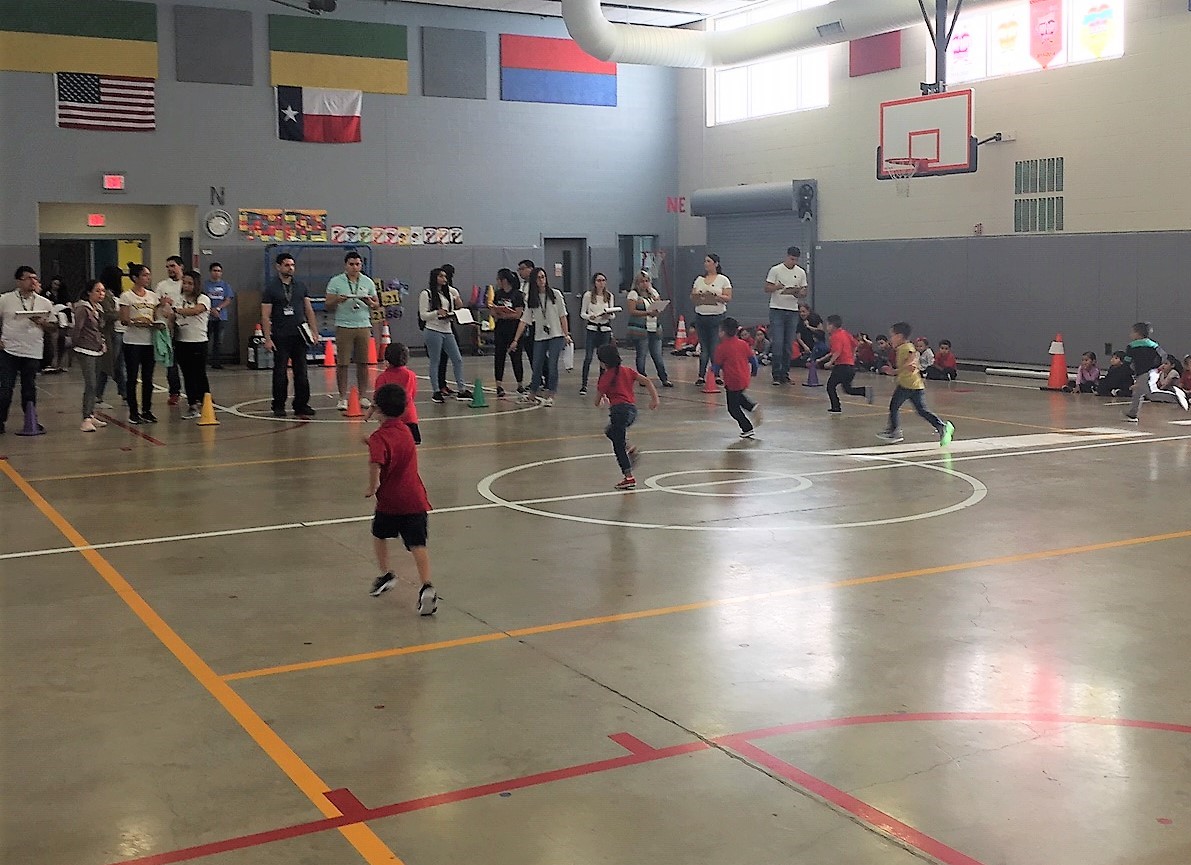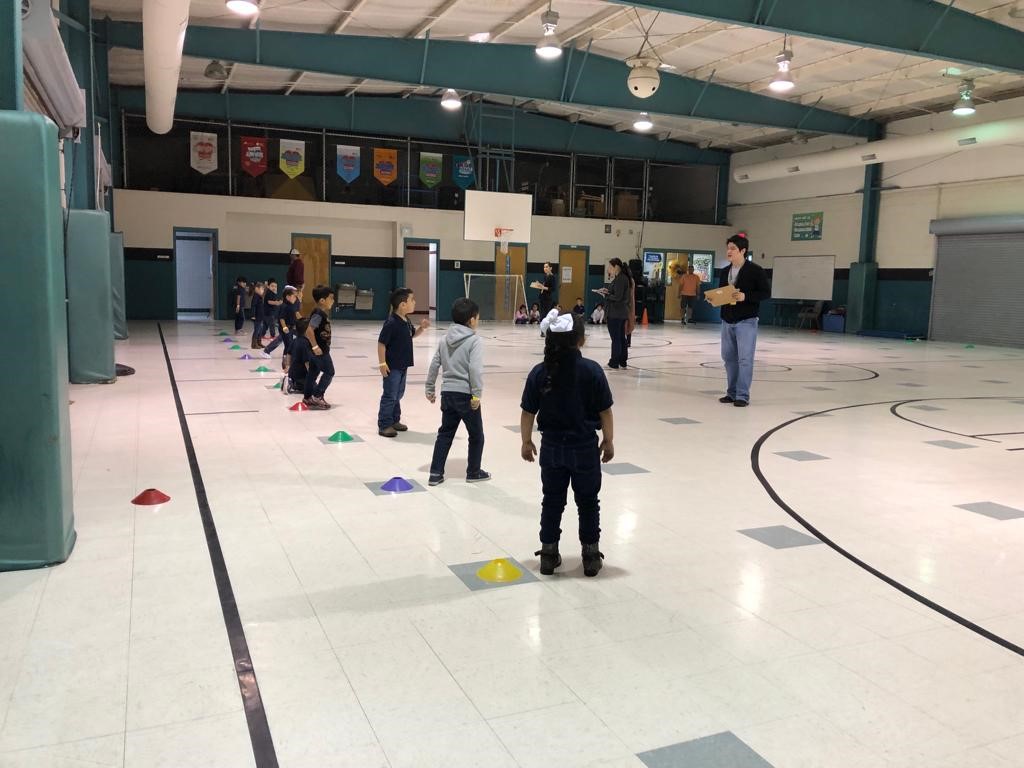By Karen Villarreal
RIO GRANDE VALLEY, TEXAS – OCT. 1, 2024 – After a years-long pilot program succeeded in increasing the health of nearly 2,000 Rio Grande Valley pre-schoolchildren, UTRGV’s South Texas Early Prevention Study (STEPS) research team, in partnership with the Social & Health Research Center (SAHRC), recently published and presented findings that are leading changes in physical education across Texas.
Dr. Zasha Romero, co-principal investigator on the STEPS study in the RGV and program director of the UTRGV Master of Science (MS) in Kinesiology, said the “Bienestar/NEEMA” bilingual child health program piloted in the Valley is now to be implemented in San Antonio school districts.
Making changes to early health education to include a child’s entire support team at home and in school – like the Bienestar/NEEMA Coordinated School Health Program (BN CSHP) does – have shown to make an impact.
“Very young children can learn about health and see a change in their physical fitness when it’s rooted in fun and play,” Romero said.
FUN WITH HEALTH
Romero said that because the children in the Bienestar/NEEMA program get their physical education experiences through dances and sing-alongs throughout the day, they develop positive associations with exercise and health.
“We work with the teachers, physical educators and health staff. Each of them has a manual with more than 100 fun lesson plans to get the kids jumping, moving and playing as they're learning about health in the classroom,” he said.
They also created educational animated videos featuring a main character named Ramiro, who fights against diabetes and sugar monsters in Cavity Land.
And parents get their own manual, too.
“Getting parents involved is the biggest part of improving their health in the future,” Romero said. “It’s their responsibility to help the children practice what they learn at school.”
LOCAL FINDINGS, TEXAS EXPANSION
The STEPS team published findings in the Journal of School Health that showed the Bienestar/Neema program resulted in a marked increase in children’s endurance and aerobic capacity on a standard fitness test – the Progressive Anaerobic Capacity Endurance Run (PACER).
The PACER test was used to measure cardiorespiratory fitness of preschool children from two school districts on the Texas-Mexico border.
Approximately 28 preschools participated – a total of 1,907 children – with half serving as a control group without the BN CSHP intervention.
- Students in the Bienestar/Neema program saw a 53 percent increase in the number of laps they were able to run, compared to children in the control group, who increased their lap capacity by 23 percent.
Following this success, the multi-year project received a one-year extension worth more than $1M to take the program to more schools, including Edgewood Independent School District (ISD) in San Antonio.
Romero and the STEPS team presented the program at a press conference in January 2024.
EARLY START
While all schools in Texas have a Texas Education Agency-approved health curriculum, many are geared toward older students.
“The Bienestar/Neema program that was used in the STEPS study was the first bilingual one approved by TEA that is being used with such a young population,” Romero said.
Considering the state’s high rates of obesity and diseases related to sedentary lifestyles like diabetes, Romero said, it is critical that children start on a healthy path early in life.
“Children don't have to end up being a statistic of chronic illness, but it's very easy to fall into that trap,” he said.
- According to a five-year longitudinal NIH study, 12.7 percent of adolescents became and remained obese into young adulthood, with only 1.6 percent of the participants shifting from obese to nonobese.
Romero said the Bienestar/Neema program “plants the seed” in their fast-learning, developing brains.
“With the right method of learning, they start growing with it, thinking differently, and flourish,” Romero said. “It is going to make a difference later on in life.”
ABOUT UTRGV
The University of Texas Rio Grande Valley (UTRGV) was created by the Texas Legislature in 2013 as the first major public university of the 21st century in Texas. This transformative initiative provided the opportunity to expand educational opportunities in the Rio Grande Valley, including a new School of Medicine, and made it possible for residents of the region to benefit from the Permanent University Fund – a public endowment contributing support to the University of Texas System and other institutions.
UTRGV has campuses and off-campus research and teaching sites throughout the Rio Grande Valley including in Boca Chica Beach, Brownsville (formerly The University of Texas at Brownsville campus), Edinburg (formerly The University of Texas-Pan American campus), Harlingen, McAllen, Port Isabel, Rio Grande City, and South Padre Island. UTRGV, a comprehensive academic institution, enrolled its first class in the fall of 2015, and the School of Medicine welcomed its first class in the summer of 2016.


